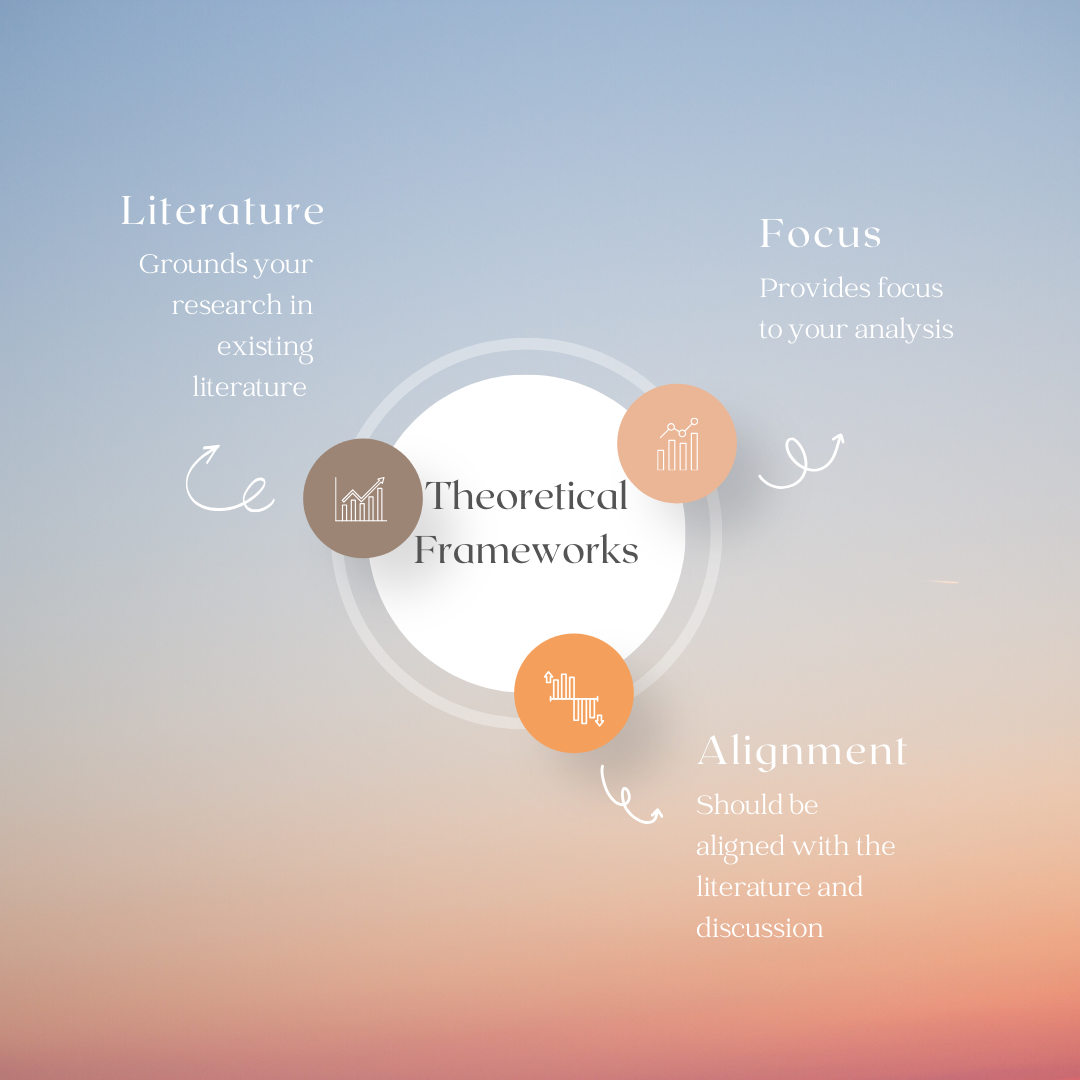Theoretical frameworks are a cornerstone of any well-structured dissertation. They provide the foundation upon which your research is built and help to position your work within the existing body of knowledge. But what exactly is a theoretical framework, and how can you use one effectively in your dissertation? Let’s explore.
What is a Theoretical Framework?
A theoretical framework outlines the theories and concepts that underpin your research. It serves as a lens through which you analyse your data and draw conclusions. Think of it as the scaffolding of your dissertation: it holds everything together and provides a clear structure to guide your work.
For example, if you are researching how leadership styles impact employee productivity, your theoretical framework might include leadership theories such as transformational or transactional leadership, alongside theories of organisational behaviour. These theories help shape your research questions, inform your methodology, and provide a basis for interpreting your results.

Why is a Theoretical Framework Important?
- It Grounds Your Research: A solid theoretical framework ensures that your research is anchored in established knowledge, lending credibility and relevance to your study.
- It Provides Focus: It helps narrow your study by outlining the specific concepts and theories you’ll explore.
- It Guides Your Methodology: Your theoretical framework directly influences your research design, from the questions you ask to the methods you use to collect and analyse data.
Steps to Develop an Effective Theoretical Framework
- Review Existing Literature: Before deciding on a theoretical framework, dive deep into the literature related to your topic. Identify the theories and concepts that align with your research objectives.
- Select Relevant Theories: Choose theories that directly relate to your research questions. Be selective—focus on quality over quantity to avoid overwhelming your study.
- Define Key Concepts: Clearly explain the theories and concepts you’ve chosen, providing definitions and context to show their relevance.
- Justify Your Choices: Explain why these theories and concepts are appropriate for your research. Demonstrate how they align with your study’s objectives and how they’ll help address your research problem.
Common Challenges and How to Overcome Them
- Overloading Your Framework: Including too many theories can dilute the focus of your research. Stick to the most relevant ones.
- Lack of Clarity: Ensure your framework is well-defined and logically presented. Ambiguity can confuse readers and weaken your argument.
- Failure to Align: Make sure your theoretical framework aligns with your research questions, methodology, and objectives.
How Academic Coaching Can Help
Creating a robust theoretical framework can be daunting, especially if you’re unsure which theories best fit your research. This is where academic coaching comes in.
As an academic coach, I can help you:
- Identify and evaluate relevant theories through targeted literature reviews.
- Understand complex theoretical concepts and how they apply to your research.
- Structure your framework clearly and logically to strengthen your dissertation.
- Align your theoretical framework with your research design and objectives.
Through personalised guidance, we can work together to ensure your theoretical framework not only supports your research but also elevates it, helping you produce a cohesive and impactful dissertation.
Final Thoughts
Your theoretical framework is more than a collection of theories—it’s the backbone of your dissertation. By selecting and articulating the right theories effectively, you can provide clarity, focus, and depth to your work.
If you’re struggling to develop a theoretical framework or feel overwhelmed by the process, consider reaching out for academic coaching. Together, we can navigate the challenges and ensure your dissertation is built on a strong foundation.